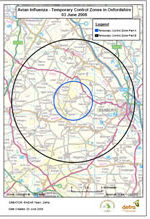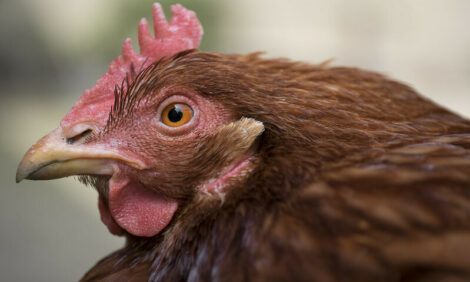



Bird Flu Back in Britain
UK - The Chief Veterinary Officer, Nigel Gibbens, has today confirmed Avian Influenza in chickens on premises near Banbury in Oxfordshire after preliminary tests were positive for the H7 strain. All birds on the premises will be slaughtered as a precautionary measure.Laboratory testing continues and results which will allow confirmation of whether the strain is high or low pathogenicity will follow. A detailed epidemiological investigation to better understand the origin and development of the disease is underway.

A Temporary Control Zone with a 3km inner zone and a 10km outer zone is being established around the Infected Premises. A number of measures apply. All birds must be housed or otherwise isolated from contact with wild birds in the inner zone. Bird gatherings are banned and all other movements of birds and some products are banned in the whole of the Temporary Control Zone. Defra is urgently considering whether any wider measures may be needed.
Poultry keepers are urged to be extremely vigilant, practice the highest levels of biosecurity and report any suspicions of disease to their local Animal Health Office immediately.
The Health Protection Agency has advised that it is important to remember that H7 avian flu remains largely a disease of birds. The virus does not transmit easily to humans, as evidenced by the small number of confirmed infections worldwide to date. Almost all human H7 infections documented so far have been associated with close contact with dead or dying poultry. The risk to human health posed by H7 avian influenza viruses remains low. Nonetheless, the local Health Protection Unit will be identifying and following up those who may have had contact with the infected poultry and provide guidance and advice, and preventative medication as appropriate.
Dr Judith Hilton, Food Standards Agency head of microbiological safety, said:
“This case of bird flu on a premises in Banbury, Oxfordshire poses no safety implications for the human food chain. Properly cooked poultry and poultry products, including eggs, are safe to eat. The science shows that the virus isn't contracted by eating food – but usually by close contact with infected birds.”
All poultry keepers on the GB Poultry Register are being notified, and the EU Commission has been informed.









